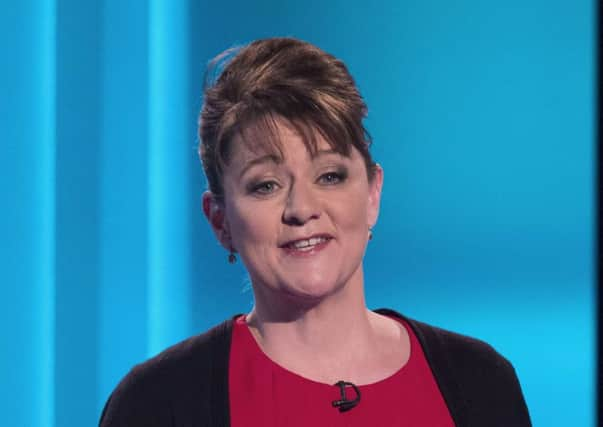Leanne Wood: National parties can benefit whole UK


This has coincided with the two largest Westminster parties seeing their combined share of the vote in opinion polls falling to historic lows.
There’s a certain irony that the parties advocating progressive, inclusive non-partisan co-operation are not those who claim to cherish the political union above all others, but the national parties of Wales and Scotland. Along with the Greens in England, our parties have provided people across these islands with a collaborative alternative to the traditional combative Westminster politics. Its resonance is confirmed by the hundreds of supportive messages I’ve received from people in England following the televised debates.
Advertisement
Hide AdAdvertisement
Hide AdHaving secured a multi-party, multi-national election campaign, my hope now is that the peoples of the UK ensure politics continues in that vein after the election itself. Whilst Plaid Cymru, the SNP and the Greens will negotiate independently in the event of a hung parliament, we will co-operate closely throughout that process in pursuit of an outcome that will benefit all parts, all nations.
One of my fondest memories of Scotland’s referendum campaign last year was in Glasgow, where I delivered a speech outlining how an independent Scotland could become a beacon for social justice for all of us in these isles. I described it as “solidarity through divergence”, where Scotland could provide a social template for progressives everywhere.
Whilst that prospect will inevitably be more limited within the confines of devolution, it is my belief that Wales and Scotland can deliver a new “race to the top” that would improve the prospects of people everywhere.
Free university education in Scotland, an NHS fully in public hands in Wales and Scotland are already examples that many in England admire. With a more comprehensive devolution arrangement for both our countries, we could provide even greater hopes for those seeking to build a more socially-just England.
Plaid Cymru and the SNP have provided the most articulate and compelling counter-arguments to the proponents of crippling austerity.
Our vision for an economy that has the fiscal breathing-space to flourish and public services that are strong is a unifying vision, a progressive vision.
Central to Plaid Cymru’s programme for this election is securing Wales’ place as a nation among equals. Wales’ third-rate devolution, coupled with an in-built disadvantage in our funding, is one of the longest running injustices of the UK’s constitution.
In facilitating and delivering upon the aspirations of the peoples of Wales and Scotland, Westminster could provide the context for a more harmonious co-existence than has been evident during this campaign.
Advertisement
Hide AdAdvertisement
Hide AdIt says much of the state of the Westminster parties that it is they who peddle the rhetoric and politics of division. It is they who attack the right of people in Scotland to express themselves as they see fit in this election. Curiously, it is they, too, who argue against the case for Wales to be afforded parity of powers and resources with Scotland.
In effectively granting the London city-state free rein some decades ago, the Westminster parties sowed the seeds for the greatest dividing line in the UK. The divide is not along Hadrian’s Wall or Offa’s Dyke. It is around that square mile in London where the economic fortunes of the state have rested, resulting in an inequality within the UK that is unmatched in any other advanced economy.
Among the most discussed images of the election campaign so far is that of my embrace with my friends and colleagues Nicola Sturgeon and Natalie Bennett following the last UK leaders’ debate. It was an embrace that didn’t only signify the common cause between us. It represents how all of us in these isles can come together and embrace a new politics. «